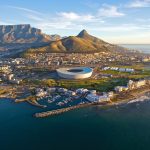The UK’s Robust Investment in Oman: Strengthening Economic and Strategic Ties
In the last year, the United Kingdom has firmly established its position as Oman’s largest foreign investor, with a record $5 billion in Foreign Direct Investment (FDI). This strategic move is a clear demonstration of the deepening economic, political, and military ties between the two nations. As of the third quarter of 2024, the UK’s total FDI stock in Oman has reached 13.7 billion Omani rials (approximately $35.6 billion), up from OMR 11.5 billion at the same time in 2023. The increase marks a steady upward trajectory, reflecting the growing confidence of British investors in Oman’s long-term economic outlook.
With this substantial boost in foreign investments, the UK has become a cornerstone of Oman’s development strategy, particularly as the Sultanate works to diversify its economy and reduce its dependence on oil and gas revenues. For the year ending September 2024, the UK contributed about $5.6 billion to Oman’s economy—an average of nearly $470 million every month. The level of this continued support underlines the strength of the UK-Oman relationship and reinforces the UK’s pivotal role in the region.
Strategic Bilateral Ties: Oil, Gas, and Beyond
Historically, Oman’s economic and political relationship with the UK has been robust, with deep ties in trade, defense, and energy. The UK’s role in Oman’s oil and gas industry is particularly significant, with major British corporations such as Shell and BP playing vital roles in the country’s energy sector. Shell, a key player in Petroleum Development Oman, has helped develop Oman’s oil reserves, while BP is actively involved in the Khazzan tight gas project, one of the largest gas fields in the Middle East.
The UK has been consistently the largest foreign investor in Oman, accounting for over 50% of the country’s total FDI as of September 2023. British investment is concentrated primarily in the energy sector, but there are ongoing efforts to expand beyond hydrocarbons. According to Douglas Alexander, the British Minister of State for Trade Policy and Economic Security, approximately 96% of UK investments in Oman are linked to oil and gas. However, the UK government is keen to encourage investments in areas such as renewable energy, technology, and infrastructure, with an eye on supporting Oman's diversification agenda.
Oman’s Diversification Efforts and UK’s Role
Oman has long recognized the importance of diversifying its economy away from its heavy reliance on oil and gas. With the implementation of its Vision 2040 plan, the country aims to create a more balanced and resilient economy by promoting non-hydrocarbon sectors such as tourism, manufacturing, mining, and logistics. The UK’s expertise in these industries is seen as pivotal in helping Oman achieve its diversification goals.
While the UK’s involvement in Oman’s energy sector remains dominant, British investments in other areas have been growing steadily. British firms are actively involved in infrastructure projects, including roads, ports, and airports, helping to bolster Oman’s role as a regional trade and logistics hub. Additionally, the UK is a partner in Oman’s developing tourism sector, with investments in luxury hotels, resorts, and leisure facilities aimed at attracting international visitors and diversifying the economy.
The UK government has also been instrumental in helping Oman navigate the complexities of its economic transformation. During his visit to Muscat in 2023, Minister Alexander emphasized the UK’s commitment to supporting Oman's Vision 2040 and its broader economic reforms. As the UK government encourages investment in new sectors, it is clear that the relationship between the two countries will continue to evolve and grow.
Trade Relations: Strong Growth in Exports and Imports
Trade between the UK and Oman has seen significant growth in recent years, further strengthening the economic ties between the two nations. In the 12 months leading up to the second quarter of 2024, UK exports to Oman surged to approximately £1.2 billion ($1.46 billion), reflecting an 11% increase compared to the previous year. These exports span a variety of sectors, including machinery, electronics, and consumer goods, all of which are increasingly in demand in Oman’s expanding economy.
At the same time, Oman’s imports from the UK also rose, reaching £400 million in the same period. This represents a 33% increase compared to the previous year, as Oman continues to diversify its sources of goods and services. The UK is a key supplier of high-value products, including engineering equipment, industrial machinery, and vehicles. The growing demand for British products reflects Oman's desire to modernize its infrastructure and industries as part of its economic diversification efforts.
Related: Oman Appoints Ahmed Al Musalmi as Central Bank Governor Amid Economic Transformation
The Impact of Hydrocarbons: A Continued Dominance of the Energy Sector
Despite Oman’s efforts to diversify, the hydrocarbon sector remains the dominant driver of FDI into the country. As of 2024, the oil and gas industry accounts for a staggering 80% of Oman’s total FDI, which amounted to OMR 21.1 billion. While efforts to move beyond hydrocarbons are progressing, the energy sector will continue to play a central role in Oman’s economic development for the foreseeable future. British companies like Shell and BP remain key contributors to the Sultanate’s energy sector, ensuring the continued success of Oman’s oil and gas production.
However, the government’s Vision 2040 plan emphasizes the importance of transitioning towards more sustainable industries, including renewable energy. British firms are poised to play a crucial role in supporting this shift, particularly given the UK’s leadership in renewable technologies and its expertise in clean energy.
Other Key Investors: The US and UAE’s Role
While the UK remains the largest foreign investor in Oman, it is not alone in contributing to the country’s economic development. The United States is the second-largest foreign investor in Oman, with a total FDI of OMR 5.25 billion. US companies, particularly in the oil and gas sector, have played a significant role in Oman’s economic landscape.
The United Arab Emirates (UAE) is also a key investor, with nearly OMR 836 million in investments, primarily in real estate and infrastructure. The UAE’s involvement reflects the close economic ties between Oman and its GCC neighbors, as the region continues to develop stronger intra-Gulf trade and investment networks.
A Bright Future for UK-Oman Relations
Oman’s future as a regional economic player looks promising, and the UK is set to remain one of its most important partners. With an eye on diversification, sustainability, and growth, the continued investment from the UK will be vital to the realization of Oman’s Vision 2040. As both nations deepen their economic cooperation and explore new opportunities across various sectors, the UK’s role as the largest foreign investor in Oman will only grow in significance.
In conclusion, the United Kingdom’s investment in Oman is a testament to the strength of their bilateral relationship and a symbol of the UK’s ongoing commitment to supporting Oman’s economic transformation. With ongoing investments, a focus on diversification, and an expanding trade relationship, the UK and Oman are poised for continued success in the years ahead.














